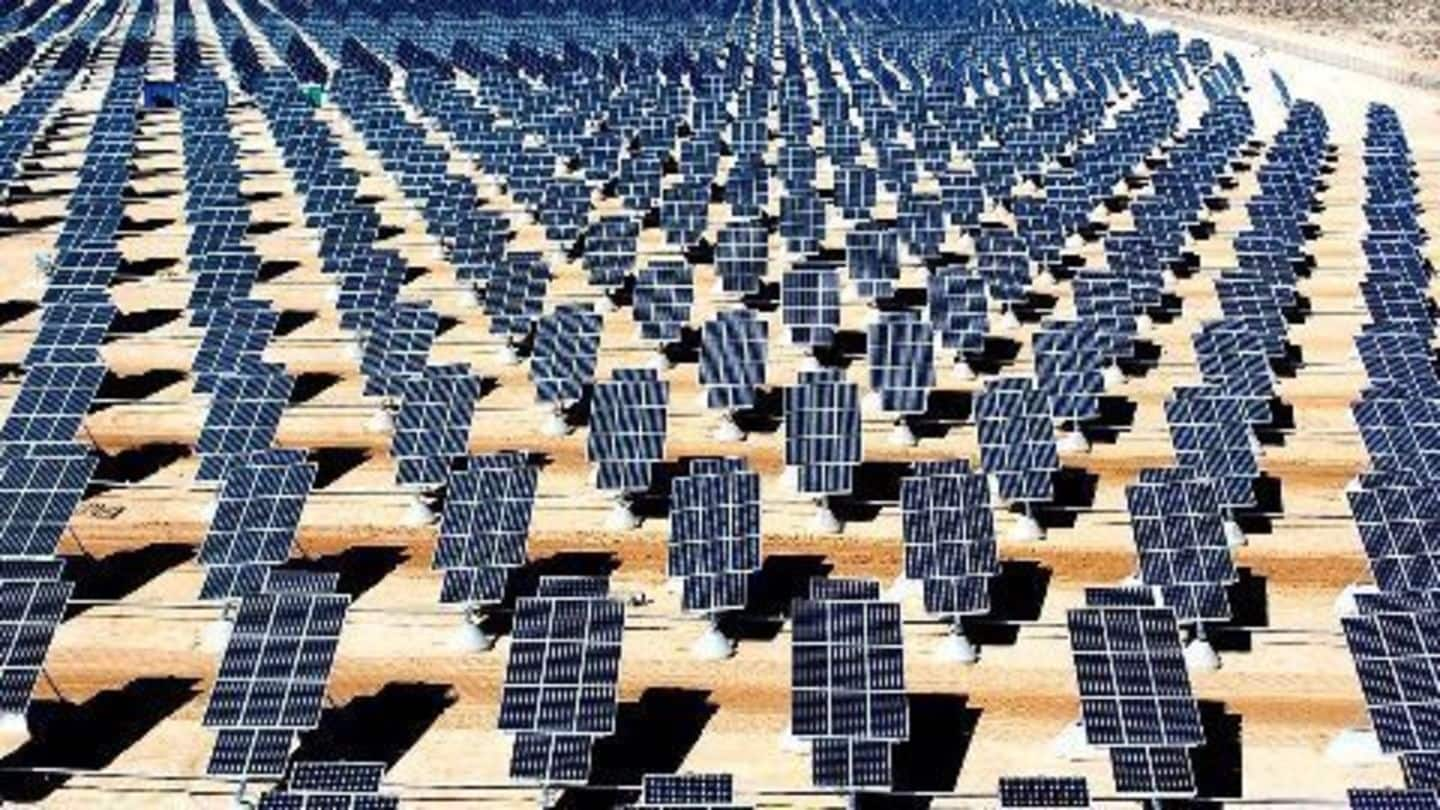
NITI Aayog pushes for a solar equipment manufacturing policy
What's the story
The NITI Aayog is in the final stages of preparing a solar equipment manufacturing policy.
The policy will aim to help manufacturers in setting up solar manufacturing facilities in India under the 'Make in India' initiative of the government.
The policy will provide enabling conditions for producing solar equipment and can include mechanisms such as off-take guarantees, 100% payment guarantees, institutional hedging, etc.
NITI
NITI Aayog: A profile
NITI (National Institute for Transforming India) Aayog is a Government of India policy think-tank established by Prime Minister Narendra Modi, replacing the Planning Commission.
The PM is the ex-officio chairperson of NITI Aayog and the current vice-chairperson is Arvind Panagriya.
Established on 1 January 2015, the aayog is headquartered in New Delhi.
It collaborates with states to develop a blueprint for India's development.
Solar Power
Govt push for solar power
In a big boost to renewable energy, the government had increased the target for energy produced by solar-power to 1,00,000 MW by 2022 from 20,000 MW earlier.
However, the present installed capacity of solar power is around 6,000 MW.
This is indicative of a gap in the availability of solar power equipment in the country which needs to be fulfilled to achieve specified targets.
Present
The current scenario
Currently, solar power equipment in the country is mainly imported from China and then assembled in India.
This makes them costlier than assembled products sourced from Taiwan and other countries.
Consequently, the government has to provide subsidies to manufactuers who source components from outside the country.
However, the subsidy as well as mandatory sourcing provision from local manufacturers face challenges at the WTO.
Personal
The need for the policy
The government is therefore, keen to have a policy to promote domestic manufacturing of solar equipment and avoid a confrontation at the World Trade Organisation (WTO).
14 Apr 2016
Possible provisions of the policy
The policy which is based on the recommendation of the high-level interministerial panel will soon go to the cabinet for approval.
The policy may provide for utilisation of the National Clean Energy Fund corpus to provide subsidies to domestic manufacturers for technological upgradations, overcoming financial distress, hedging support, etc.
A new bidding framework and viability gap funding for manufacturers are also being discussed.